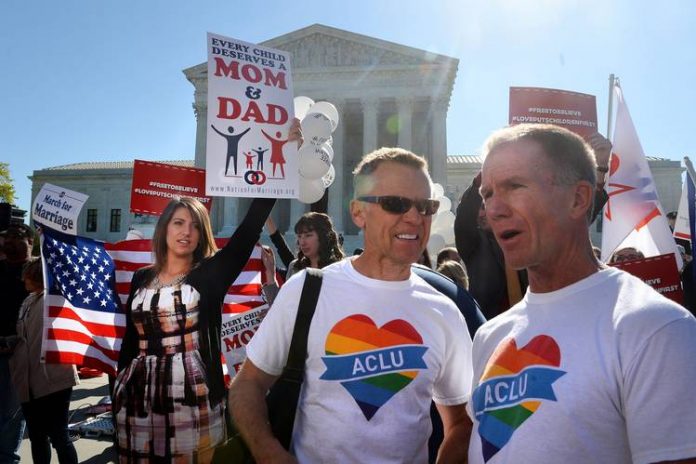
\The United States’ Supreme Court has upheld a Mississippi law that protects religious persons including Christians from penalties if they decline to offer their services for same-sex wedding ceremonies.
The court refused to hear an appeal of Mississippi’s “Protecting Freedom of Conscience from Government Discrimination Act,” that was signed into law by Governor Phil Bryant in April 2016, but blocked ever since.
Alliance Defending Freedom (ADF) Senior Counsel Kevin Theriot expressed happiness that the Supreme Court had refused to “take up these baseless challenges.”
According to him, the Mississippi law was aimed at ensuring that citizens “don’t live in fear of losing their careers or their businesses” for believing that marriage is “a husband-wife union.”
Law Allows People To Refuse Participate In Same Sex Weddings
Under the provisions of the law, government cannot penalize Christians who refuse to officiate or participate in homosexual “marriages.” However the law applies only to personal affirmation through participation in ceremonies that violate their beliefs and not to general service.
The law also allow businesses ensure separate bathrooms for men and women.
The American Civil Liberties Union had sued to stop the law as soon as it was signed. District Judge Carlton Reeves struck down a portion of it in June 2016, ordering county clerks to issue homosexual licenses regardless of their religious beliefs.
Subsequently, a three-judge panel of the U.S. Fifth Circuit Court of Appeals unanimously vacated Reeves’ decision on appeal, to allow the Mississippi Freedom of Conscience Act go into effect whole.
According to the appellate court the challenge failed to show “clear injury-in-fact that satisfies the ‘irreducible constitutional minimum of standing.’” According to Theriot, those who are not harmed by the law should not be “allowed to restrict freedom for others.”
The case finally reached the U.S. Supreme Court, which has now declined to hear an appeal of the Fifth Circuit ruling which upheld the law. The Supreme Court did not provide any explanation for its decision.
SC Decision May Influence Other Such Cases
Gay advocacy groups expressed concern at the decision. Lambda Legal attorney Beth Littrell noted that with this decision, LGBT people of Mississippi would be “in the crosshairs of hate and humiliation”.
Supporters of the law are hoping that the decision will influence similar cases. The most high profile case on the matter is the Masterpiece Cakeshop v. Colorado Civil Rights Commission, which the Supreme Court has agreed to hear. Oral arguments in this case were heard last month and a decision may arrive in June.


